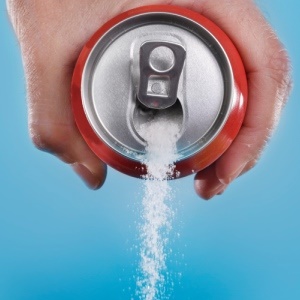
The proposed tax on sugary drinks is likely to go ahead later this year, following negotiations between government, labour and industry at the National Economic Development and Labour Council (Nedlac).
“It’s quite clear that the tax will happen and maybe even this year. If not, the conservative estimate is for the tax to be introduced at the beginning of the next tax season in March 2018,” Matthew Parks from the Congress of South African Trade Unions’ (Cosatu) told Health-e.
Hypertension and diabetes
Parks was speaking after the Nedlac discussions last Friday. Negotiations are due to continue next week but Parks said the debate is now less about whether or not there should be a tax and more about how to mitigate against job losses and save the “livelihoods of families".
In parliamentary hearings, health experts were unanimous in their support for the tax as a measure to reduce obesity and its related health problems, such as hypertension and diabetes. South Africans are now among the fattest people in Africa, with 70% of women either overweight or obese and diabetes is now the biggest killer of women in the country.
However, the beverage industry and sugar farmers warned of massive job losses should the tax be implemented and Cosatu, while conceding the unhealthy effects of sugary drinks, has also raised its concern about job losses.
“We are especially concerned with sugar cane farmers and we call on government and industry to raise the percentage of locally sourced sugar from 85 to 100%,” said Parks.
A significant degree of consensus
In parliamentary hearings on the proposed tax, industry proposed that Nedlac was the appropriate forum for consensus to be reached on the tax.
However, while chair of the finance parliamentary Yunus Carrim, agreed that Nedlac “has the capacity to find a significant degree of consensus”, he warned that the final decision on the tax rested with Parliament.
“Ideally, we would vote on the [Rates and Monetary] Bill after the Nedlac process, but, at the very least, we will consider the progress in Nedlac before we vote,” said Carrim.
Nedlac excludes the Food and Allied Workers Union (Fawu), which represents most of the workers who could be affected by the tax-related job losses threatened by the Beverage Association of SA and allied industry players. However, there were no job losses in Mexico, which introduced a similar tax in 2015.
Estimated potential job losses
Initially, Treasury has proposed a tax of around 20% on a can of Coca Cola. However, it later proposed a 2.1 cent tax per gram of sugar on all sweetened drinks, but offered to exempt the first 4g per 100ml from the tax. This was an attempt to encourage industry to reformulate its drinks to reduce their sugar content.
The second Treasury concession was to exempt 100% fruit juice from being taxed they contain other vitamins and nutrients that regular fizzy drinks don’t.
The beverage industry estimated potential job losses across sectors in the tens of thousands after the implementation of the tax. But a socio-economic study presented by Treasury to Nedlac showed total job losses could be as low as 1 500 – if industry reformulates and reduce the sugar content of 37% of their products. – Health-e News
Image supplied by iStock




 Publications
Publications
 Partners
Partners










